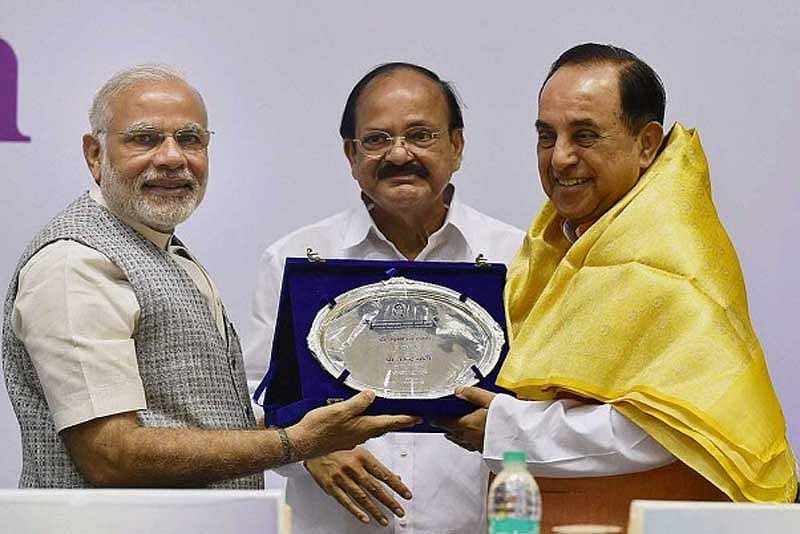
As the country approaches the 2019 General Elections amidst the growing cacophony that now goes by the name of politics, it is the idea of Brahminical supremacy that has won the day and has corroded almost every aspect of our political system.
Belligerent and masculine nationalism, the oft-repeated statement about Muslims being the ‘enemy inside’ – thus keeping the social pot always on a slow fire that could easily be turned into a full-fledged communal riot, and the torturing and killings of Dalits are the defining features of the time under the Bharatiya Janata Party (BJP) government led by Narendra Modi.
It indeed is a hopeless situation for the politics of social justice and social transformation, not because it has lost meaning or takers, but because of a deeper morass that has engulfed the very idea of politics in India. More than ever before, the Indian nation and its nationalism are defined by Brahminism today.
It is in this political milieu that we must see the recent utterances by BJP MP Subramanian Swamy, who underlined his Brahmin status while responding to the #MainBhiChowkidar campaign of the ruling party. Many of us found this latest slogan from Modi quite distasteful and callous, referring as it did to a section of society engaged as security persons or chowkidars – a class of heavily underpaid people, exploited by making them work long hours and with little or no dignity in their work.
Notwithstanding the entirely ridiculous campaign invoking chowkidars by the learned prime minister, – through which the government wants to salvage its image of patronising big capital and abetting the escape from India of other cronies – Swamy has been quite honest and sincere. He doesn’t hide his Brahminism the way his party does.
In fact, when he says he ‘cannot be a chowkidar’ given his Brahminical divinity, the joke is actually on the government who cannot even counter Swamy’s utterances because his is the divine truth that actually informs their everyday politics: the politics of brutalizing Dalits, Adivasis and religious minorities as ordained by the nation conceived by Brahminism.
What Subramanian Swamy said was in continuance of the action and statements of the likes of Bandaru Dattatreya, whose interference led to the institutional oppression of Rohith Vemula resulting in his death. The government is yet to come clean on this. One should not forget another BJP MP from Karnataka, Anant Kumar Hegde, who is obsessed with Rahul Gandhi’s caste and wants proof of Gandhi being a Brahmin.
The list can go long, however, the point being that all such statements and actions are not simply the political snobbery of a few deranged politicians. This is the outcome of the Rashtriya Swayamsevak Sangh’s (RSS) ideological model of India being a ‘Hindu rashtra’ (nation), while what they actually mean is an India structured on the principles of Brahminism.
The bigger irony, however, is that the response to this politics of Brahminism – at times wrongly conceived of as majoritarian politics of Hindus (but that’s a different story) – is also Brahminism. How else to characterise Rahul Gandhi’s numerous temple visits and the dumbstruck efforts of leaders like Mayawati, Akhilesh Yadav, Mamata Banerjee, who never confront the hydra-headed face of the RSS cultural model ideologically.
For most of the Opposition leaders taking on RSS-BJP politics is done through engineering an electoral alliance vested in their social support base. What they completely ignore is the fact that the RSS and BJP have the ideological fodder for their Opponent’s base as well.
So, no surprises when a Samajwadi Party or a BSP supporter is also a 'militant Hindu’ at the same time. It is not very difficult to predict a growing socioeconomic precarity of a Dalit Bahujan mass who is made to live in the make-believe world of being a Hindu while it is they who are the most discriminated against by the same religion.
If truth be told, the BJP under the Modi-Shah duo is the biggest enemy of Dalits and Adivasis in the country today. One just has to see the damage they have done to higher education – the only sector that promises and ensures a life of dignity to the marginalised sections.
The idea of an inclusive nation, as conceptualised by the makers of the Constitution, committed to the welfare of its socially differential populace stands brutalised today. And what is at stake is much bigger than merely the battle between the BJP and the Congress and political forces encamped as the third front. It is the battle to rescue politics itself, for if not done now, we will soon have a political system which will be bereft of any politics, let alone the politics of social justice.
(Moggallan Bharti teaches at the School of Development Studies, Ambedkar University Delhi)